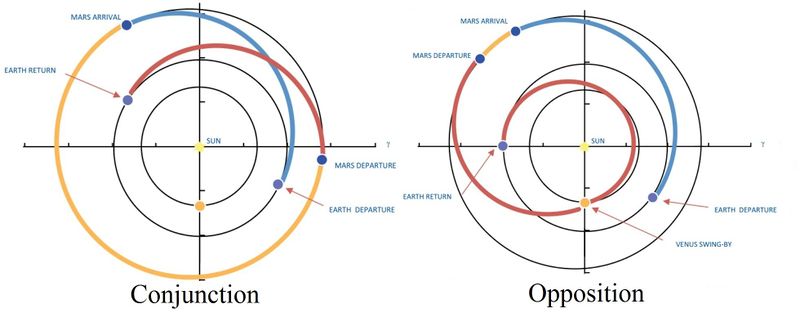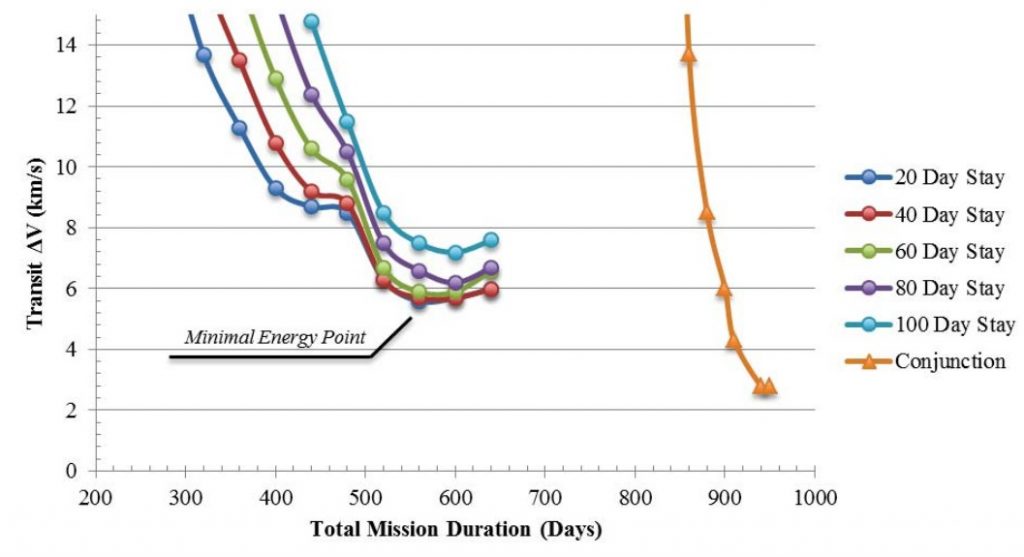One of the unknowns related to future missions to Mars is the length of the journey: the psychological consequences on the crew could compromise the success of a mission.
Among the most difficult aspects of any future missions to Mars there are certainly the considerable distance to cover and the isolation to which the crew would inevitably be subjected during the voyage. In recent years, several studies have tried to simulate the effects of such an experience on the psychology and dynamics of a potential group of astronauts, with effects that are not always predictable or encouraging.
WHY DO NOT YOU TALK TO ME? The latest of these experiments was conducted in Russia: the aim of the study was to verify the evolution of communications between the crew and mission control during a hypothetical journey of over 380 million kilometers.
Project SIRIUS (Scientific International Research In Unique terrestrial Station) this is the name of the experiment, involved two groups of 17 people who between 2019 and 2020 were locked up for 120 days in a structure that simulated the interior of a spacecraft traveling in deep space. The study results were published in Frontiers in Psychology.
GOODBYE PUNCTUALITY … Research has shown how the progressive delay in communications between the crew and the Earth, which increases as the distance traveled by the spacecraft, together with isolation, contribute to changing the interaction patterns between astronauts and ground mission control. From a practical point of view, the study showed how, with the passing of the days, the crew tends to be less punctual in reporting what happens on board and become progressively more autonomous in making decisions.
INDEPENDENT, BUT NOT TOO MUCH. While the fact that astronauts behave more and more like a team is positive in itself, it is quite worrying that, from mid-mission onwards, it considers it less and less important to consult mission control even in the most critical situations. This behavior, the researchers explain, risks compromising a future mission because it removes the control center from what happens on board. The study also confirmed the differences in behavior between men and women that had already emerged during other similar experiments.
MEN AND WOMEN. Psychologists have noted that women tend to be more precise and regular in their communications with the Earth, and also more likely to report problems. Men, on the other hand, focus more on “doing” and resolving any impasses without feeling compelled to make detailed reports as required by the procedures.ANOTHER ROUND. On November 4th a new SIRIUS mission “started”, with an expected duration of 8 months: who knows if the 17 volunteers will resist until the end …
MARS MISSION DURATION. Manned missions to Mars split in two different types. They are named after astronomical names of the moments of departure of the ships from Mars: conjunction and opposition. Opposition type mission have less total time on Mars, but more time spent travel in weightless conditions, and a much higher radiation load. Conjunction mission have much more time spent in Mars surface. Сonjunction and opposite mission type examples:
| Mission type | Total mission duration, days | Earth-Mars trip, days | Time spent at destination | Mars-Earth trip, days | Total ∆V, km/s | Trans-Mars Injection, km/s | Mars Orbital Insertion, km/s | Trans-Earth Injection, km/s |
| Conjuction | 1005 | 198 | 558 | 197 | 2.81 | 0.5 | 1.25 | 1.06 |
| Opposition | 560 | 177 | 40 | 342 | 5.69 | 0.61 | 1.75 | 3.33 |



